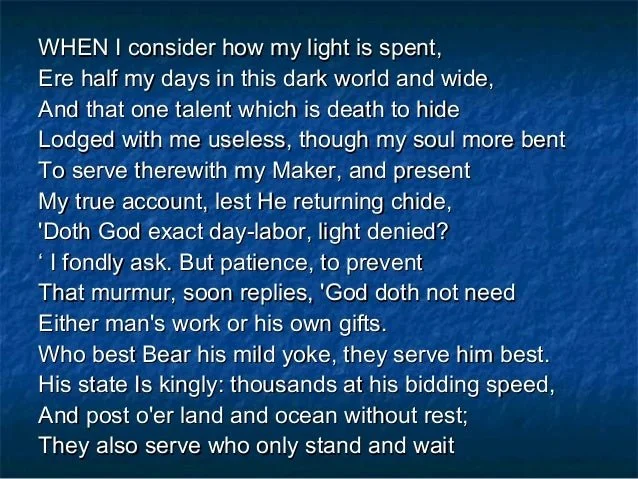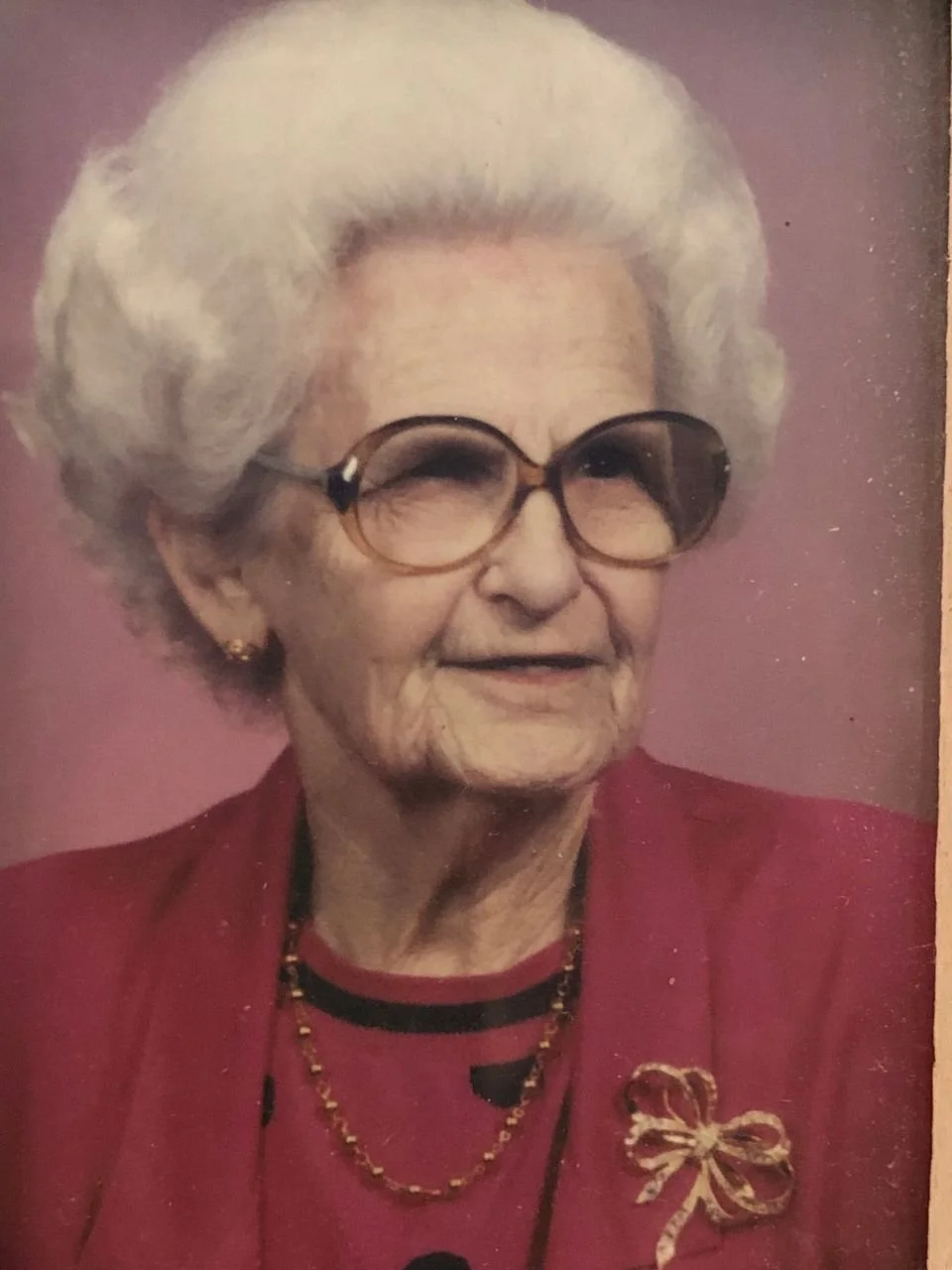Those Old Men Again
You know those old men I talked about last week? Four hundred years ago, John Milton had become like one of those old men. Milton, the most significant English writer after Shakespeare, was brilliant and prolific: his most famous poem, “Paradise Lost,” is over 10,000 lines long in itself.
But Milton went blind, and he wasn’t even old. Needless to say, he brooded over what he would do now. He was a Christian, and he wanted to serve God, but how could he write? He made his quandary into a sonnet, now one of the most famous sonnets in the world, mainly for the last line. (See the picture)
Milton realized he didn’t have to DO anything to serve or please God. He could rest in that assurance and not fret. But the unexpected twist to this story is that Milton ended up being able to continue writing even after he was blind. He composed aloud and other people took dictation for him. His magnum opus, “Paradise Lost,” was composed after he lost his sight.
Jesus has assured us: “I am the vine; you are the branches. If anyone remains in me and I in them, they will produce much fruit; apart from me you can do nothing.” (John 15:5) Milton was able to produce amazing literature after he went blind. God didn’t need his eyesight. The old men of last week are contributing to the goodwill of society by their friendships and sheer presence. God uses anyone who is available. He produces the fruit. We just hang onto the vine.





